Karl slams Shorten over plan to repatriate Islamic State brides and their children
Karl Stefanovic has ripped into the government over a controversial plan to repatriate up to 60 Islamic State brides and their children from Syria.
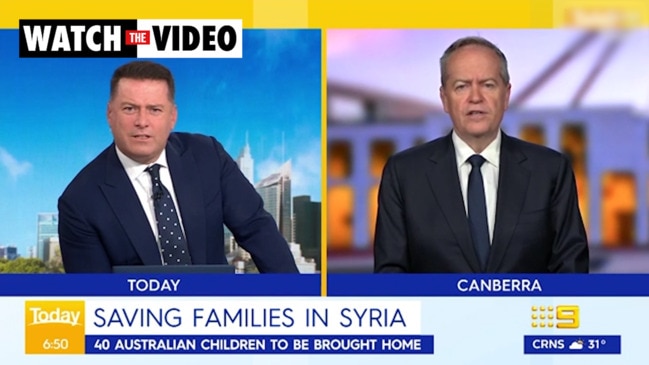
Karl Stefanovic has slammed the federal government over a controversial plan to repatriate up to 60 Islamic State brides and their children from a detention camp in Syria.
The Today show host was speaking with Government Services Minister Bill Shorten on Tuesday morning about the dangerous mission, which is set to cost taxpayers millions of dollars, amid concerns the 16 women and 42 children could pose ongoing risks to the community in Australia.
Successive governments have wrestled with the rescue plan for years, and former Liberal frontbencher Karen Andrews warned on Monday that she had rejected the mission when she was Home Affairs Minister due to the “unnecessary risk and enormous cost”.
“Bill, it requires a certain conviction to move overseas with your bloke and take part in Islamic State wars. How do you reckon that sits with most Aussies?” Mr Shorten was asked on the Nine program.
“I think people want to make sure that we are secure,” he replied.
“They want to make sure our national security is intact. It is a national security matter. There is not a lot I can add at this point but I can just reassure viewers that national security is the number one assumption here. I mean, a lot of these kids are under six of course, and they didn’t have any say in what happened to them, but it is a national security matter … that is our number one consideration.”
2GB host Jim Wilson pressed, “I mean, it looks as though this is going to happen but by the sounds of it when you talk about the risk, and if national security is the number one priority, should it be happening?”
Stream your news live & on demand with Flash. From CNN International, Al Jazeera, Sky News, BBC World, CNBC & more. New to Flash? Try 1 month free. Offer ends 31 October, 2022 >
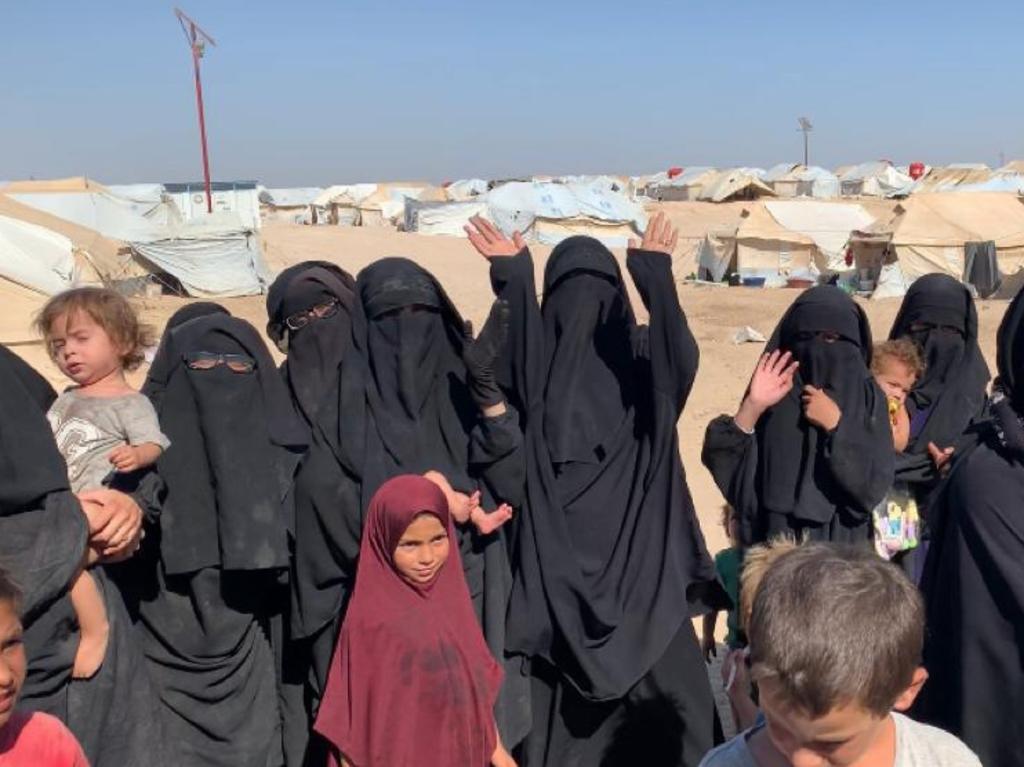
“Well, I guess there is a general argument you could have there,” Mr Shorten said.
Stefanovic cut in, “It sounds like you don’t agree with it?”
“No, not at all,” Mr Shorten said.
“I don’t have sympathy for some of those blokes who went over there, no sympathy at all. But if you are a kid under six, let’s not pretend anyone really asked their permission or what was happening to them, and if they are Australian citizens … Anyway, I can see both points of view.”
Stefanovic was unconvinced.
“I know you can, but I am picking up what you are putting down,” he said. “I don’t think you would necessarily support this if you had a choice.”
The frontbencher insisted he supported the scheme.
“I just want to reassure people it is about national security first,” he said. “They will be the considerations. A lot of these are kids under six, so I am not going to pretend you just give up on Australian citizens under six.”
Wilson agreed it was a “complex” issue with “a human side of it”, but Stefanovic took a harder line.
“I get that, but I think if you make a decision to go overseas with someone and fight for Islamic State, you are making a decision as a family – there is no way in the world you should be allowed to come back here,” he said.
“Again, I think it is a very, very complex situation,” Wilson said. “We have kids involved, women – who knows if they have been radicalised?”
Stefanovic insisted the families “make that decision when you leave the country, when you are going to fight”, rejecting Wilson’s claim that “some of them didn’t have a choice”.
“What are you going to do, bring them back?” Stefanovic said.
“What you do with the partners? [Do] they come back as well? That is the whole thing. You set a precedent saying, ‘Look, it is OK, go and fight and you come back at some point.’”
Federal cabinet’s national security committee will meet on Tuesday to formally approve the rescue plan, which will see the women and children brought back from the al-Roj detention camp near the Iraqi border where they have languished since the fall of the short-lived “caliphate” three-and-a-half years ago.
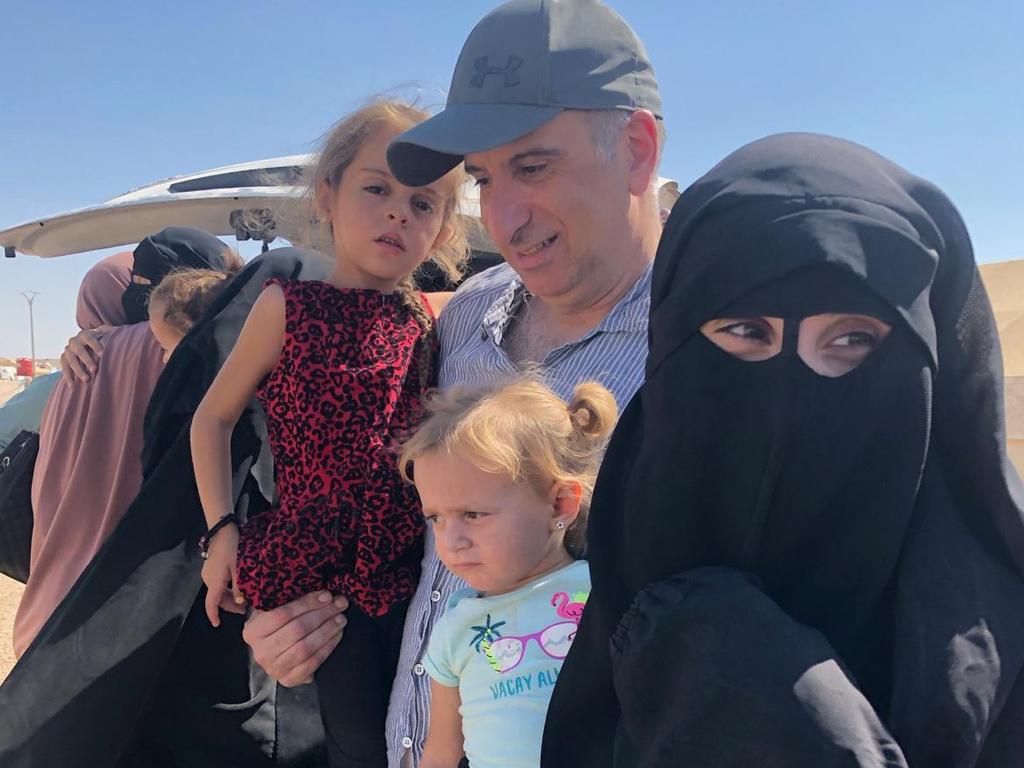
It comes after a secret ASIO mission to the war-torn country gave the plan the green light following “risk assessments” of the group and their extended families in Australia, The Australian reported this week.
Opinion polls have previously shown little support among the Australian public for repatriating Islamic State families.
A 2019 Newspoll found 59 per cent of voters opposed their return versus 36 per cent in favour, with opposition strongest among Coalition voters at 70 per cent.
Labor voters appeared to be split on the issue, with 50 per cent in favour of their repatriation and 45 per cent against.
On Monday night’s The Project, former ADF intelligence analyst Shane Healey was asked by host Carrie Bickmore whether Australia was obliged to bring them back “even if there is a slight risk”.
“Yes, 100 per cent,” Healey replied.
“I don’t see how we can bring refugees out of Sudan, out of Afghanistan and out of other countries that are war-torn and leave Australian citizens sitting in such a terrible state.”
He added that the process could take months.
“They’re going to take them to a host nation somewhere in the Middle East and give them a holistic assessment – psychological, education, medical – and that takes weeks, and then slowly unpack whether it is trauma or any medical issues and then start building them up to integrate back in Australia,” he said.
“Most of the young kids probably don’t even speak English or have had formal education so that would be one of the processes.”
Host Waleed Aly pointed out that deradicalisation programs had a “sketchy” track record.
“I hate the term ‘deradicalised’ because I believe it is an extremist spectrum,” Mr Healey replied.
“It’s not about being radical or their religion, it is their acceptance or use of violence. Most of those courses or programs failed because they are trying to target the religious aspects. I worked for Youth Justice NSW where we were very successful in this. We targeted their willingness or acceptance to use violence in order to achieve their end state.”
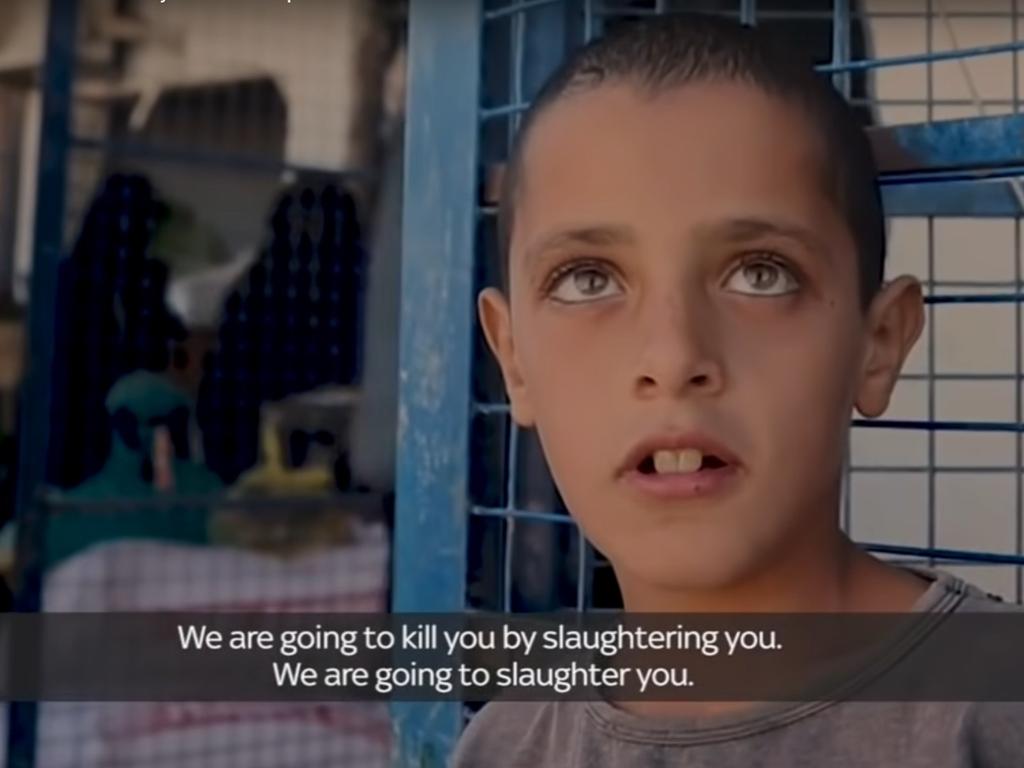
‘Tricked’ into going to Syria
Kamalle Dabboussy, whose daughter Mariam remains trapped in the camps with her three children, said all the signs of a breakthrough were there.
“It caught us all by surprise. It had been a wall of silence for a couple of weeks, and that was different,” Mr Dabboussy told news.com.au.
Mariam Dabboussy was a childcare and migrant support worker in Sydney before she travelled to the Middle East in mid-2015 with her husband and their 18-month-old child.
She later told Four Corners that she was “tricked” by her then-husband, Kaled, into going to Syria.
“If it wasn’t for him, none of us would have found ourselves here,” she said.
After her first husband died in an air strike, she was forced to remarry twice. Her second husband was killed when she was nine months pregnant.
“I mean, as it went along we just basically figured out that we just got conned by the boys,” she said.
Home Affairs Minister Clare O’Neil warned that, given the sensitivities of the operation, she was not able to offer more details.
“The Australian government’s overriding priority is the protection of Australians and Australia’s national interest, informed by national security advice. Given the sensitive nature of the matters involved, it would not be appropriate to comment further,” she said.
While some women travelled to Syria willingly, others were taken as teenagers and married off to terrorists while under the age of consent.
Many of the children were born overseas and have never attended school or received medical care in the detention camps, where they were held without charge.
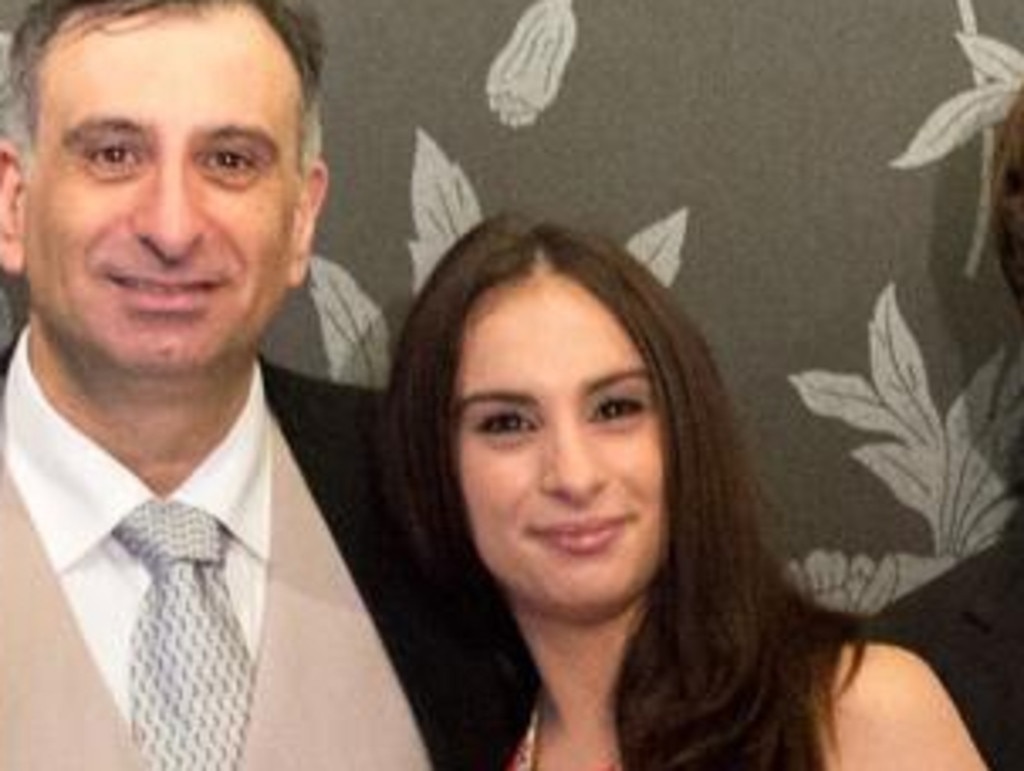
The widows, wives and children of dead or jailed combatants have pleaded to return to Australia for years after the fall of Islamic State.
Many now claim they were coerced or tricked into travelling to Syria and have even offered to be the subject of terror control orders if they can return home.
The control orders, which can be imposed on those who trained or participated in training with a listed terrorist organisation, can require a person to remain at specified premises for a maximum of 12 hours within any 24 hour period, wear a tracking device, report to someone at a certain time and place, and allow themselves to be photographed and fingerprinted.
Germany has previously repatriated 91 citizens, France 86 and the United States 26.
But the previous Morrison government resisted calls to follow suit, warning that some women within the group would pose a “significant security threat to our country”.
Two years ago, the then-home affairs minister Peter Dutton warned against the women returning home.
“These are not innocent women who have taken their children into the theatre of war,” Mr Dutton said at the time.
Save the Children Australia chief executive Mat Tinkler, who has been campaigning for years for the women and children to be repatriated, backed any moves to allow them to return home.
More Coverage
“For more than three years, these children have been trapped in one of the worst places in the world to be a child, and their situation has been growing increasingly desperate. I saw these conditions first-hand when I travelled to Roj camp in northeast Syria in June,” he said.
“Australian children are poorly nourished, suffering from untreated shrapnel wounds and the situation is impacting their mental health. They are just hanging on. The possibility that they could finally be brought home to safety in Australia will be an enormous boost for their families.”
– with Samantha Maiden






